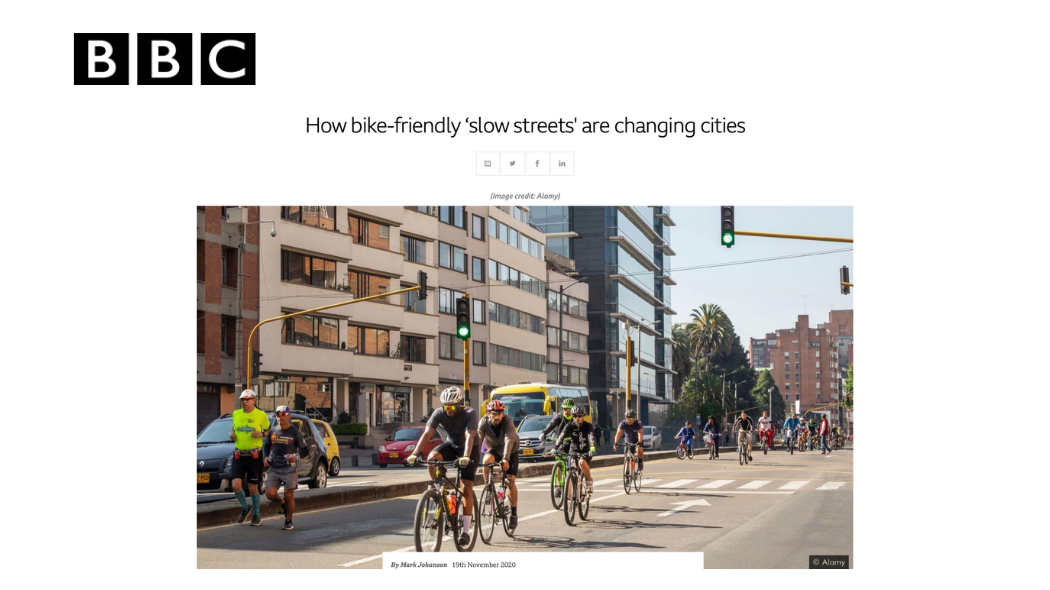In its article How bike-friendly 'slow streets' are changing cities, the news portal BBC.com highlights Bogotá's cycle-infrastructure as an exemplary model, citing the Copenhagen index, which classifies bicycle-friendly cities.
The British media highlights some of the milestones in the history of the relationship between Bogotá and the bicycle, “The Colombian capital even generated a movement, which is now replicated internationally, in the 1970s called Ciclovía, which sees 1.5 million people pedal through 128 km (80 miles) of car-free streets every Sunday morning. "
The note quotes Carlos Pardo, an expert in urban planning and a member of NUMO, an international mobility and urban planning alliance that explains the challenges faced by the implementation of bicycle lanes in Bogotá, “Some drivers say: 'they took the lane from us', but we we say we took a vehicle lane and created a two-lane bi-directional bicycle lane; therefore, space efficiency is doubling, and moving more people per hour, per direction".






